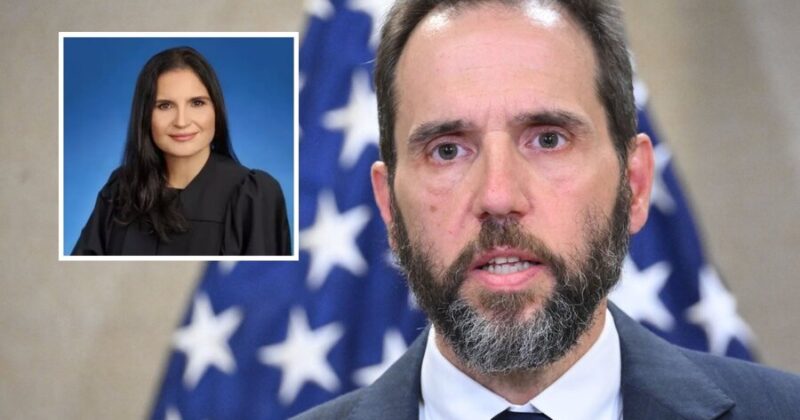U.S. District Court Judge Aileen Cannon presided over hearings on June 21 concerning special counsel Jack Smith’s appointment and the extent of his authority.
Former President Donald Trump filed a motion to dismiss his case involving classified documents, arguing that Smith’s appointment was illegal, thereby invalidating his actions.
In addition to Emil Bove arguing for the defense and James Pearce arguing for the prosecution, attorneys Matthew Seligman, Josh Blackman, and Gene Schaerr represented three groups of former government officials and legal experts who weighed in on the matter.
Central to the defense’s stance is the claim that the special counsel’s appointment breaches the Appointments Clause. This constitutional provision mandates that officers must be nominated by the president and confirmed by the Senate.
Nevertheless, it also permits Congress to pass laws granting department heads the power to appoint subordinate officers who do not require Senate confirmation but report directly to the department head.
The defense argued that Mr. Smith holds authority beyond that of an inferior officer and therefore was improperly appointed as a higher-ranking official. In contrast, the prosecution argued that Mr. Smith was appropriately appointed as a subordinate officer under the supervision of the attorney general.
The judge raised questions about where the attorney general’s authority to appoint such an officer came from, and how much oversight he really has over the special counsel.
The attorney general’s appointment of Mr. Smith referenced sections within the 28 U.S. Code detailing the attorney general’s functions, delegation of authority, appointment procedures for officials, and rules governing attorneys retained by the department.
During the hearing, Judge Cannon raised a critical question to Mr. Pearce about the absence of a dedicated special counsel statute, expressing skepticism over the prosecution’s reliance on a collection of statutes to justify Mr. Smith’s authority.
Mr. Pearce countered by citing historical precedent where previous attorney generals and presidents had appointed special counsels, arguing that if Congress has authorized the attorney general to appoint inferior officers, the method of appointment—whether by the president or attorney general—should not affect its legality.
Amici supporting the defense pointed to past practices where attorney generals had appointed special counsels, some of whom had undergone Senate confirmation, suggesting this did not violate constitutional norms.
Conversely, supporters of the prosecution highlighted Congress’s explicit delegation of authority to the attorney general to appoint inferior officers like the special counsel.
Defense attorneys argued against justifying current actions with past unlawful appointments by the Justice Department and highlighted the narrow scope of statutes from the 1960s, which they contended did not adequately address the role of today’s “special counsel.”
If the special counsel is categorized as an inferior officer, Mr. Pearce emphasized that he would fall under the authority of the attorney general, who retains the power to revoke appointments and overturn decisions.
Judge Cannon sought examples to clarify oversight of Mr. Smith’s actions thus far, but Mr. Pearce couldn’t provide specifics. When asked about the attorney general’s oversight of indictment decisions, Mr. Pearce stated he couldn’t confirm whether such oversight had been exercised, noting that the attorney general has discretion to review but is not obligated to intervene under departmental rules.
Judge Cannon pressed Mr. Pearce on why he couldn’t provide a definitive answer, insisting it should have been clear whether the attorney general oversaw indictment decisions.
Mr. Pearce acknowledged decisions had been made but lacked details to elaborate further. Amici argued that the attorney general’s authority to overrule the special counsel shouldn’t hinge on the counsel’s unethical conduct, countering Mr. Pearce’s assertions.
Share your thoughts by scrolling down to leave a comment.

